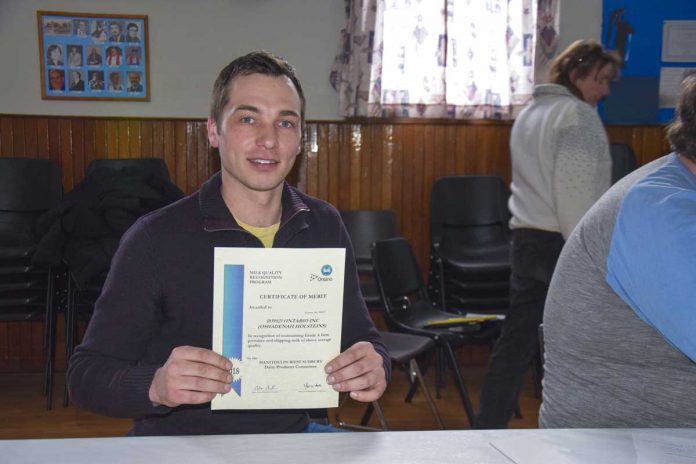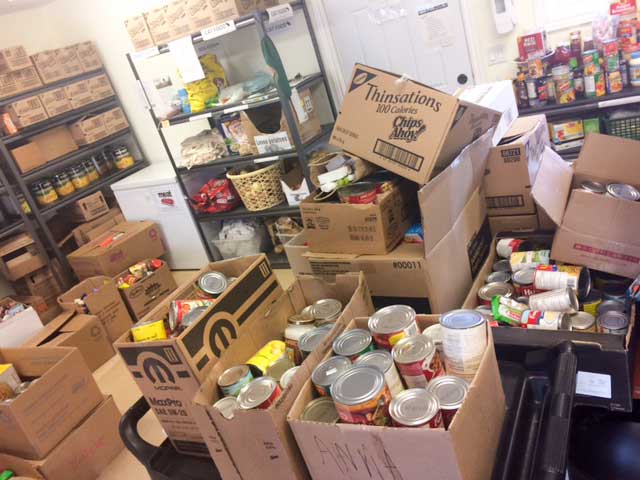GUELPH—When crashes happen involving cattle trucks, the resulting situations are sensitive and must be handled with the utmost of care. The Beef Farmers of Ontario (BFO) is rolling out a new pilot program that aims to improve the way these situations can be addressed alongside first responders.
“We’re putting this together out of a sense of responsibility for what needs to be done in difficult situations,” says Michael Campbell, policy advisor at BFO.
Due to the geography and weather conditions present in Northern Ontario, he says there are additional considerations in properly responding to cattle truck crashes.
“If it happens in the south, fire departments and police are able to take care of it well and usually get people with expertise such as beef farmers on the scene quickly,” he says. “When it happens in the North, it’s often isolated and fire departments may not be equipped to handle the situation.”
Mr. Campbell says that in the North, fire departments may not be present at all over large, unpopulated areas and they may not be equipped to handle these situations. This is compounded by the large amounts of volunteer forces across the North that cannot spend the same amount of time on training as full-time staffed forces.
“We’re not in any capacity official emergency responders and we can’t act like that; at every crash we have to act within the parameters of how the first responders want to do things. But we’re there with invaluable expertise and invaluable equipment,” says Mr. Campbell.
BFO has received partial funding through the Canadian Agricultural Partnership for a new pilot program that places trailers containing mobile livestock gates in key locations across Northern Ontario: Thunder Bay, Algoma, Cochrane and North Bay.
“We’re drafting procedures for their use, maintenance and requirements for when they can be used and shouldn’t be used. We want to see if this is a system that works,” says Mr. Campbell.
Having the tools and expertise to adequately deal with loose and/or injured cattle after a crash is of the utmost importance, according to Mr. Campbell.
“You don’t want an 800 pound steer standing in the middle of the road at night in the winter. That can be a very dangerous situation. Our trailers are intended to facilitate the rescue of the animals but also make sure they don’t get anywhere they’re not supposed to be,” he says.
“Nobody likes to see [crashes] happen. It’s not a good look for the industry and not a good situation for the animals involved. So when we’re transporting them across the country or the province, we want to make sure there are precautions put in place to make it as safe and comfortable as possible,” says Jordan Miller, director-at-large on the BFO board and a Kagawong resident.
The three key factors that Mr. Campbell cites as most important for this program are isolation, equipment and expertise. Northern Ontario is remote and sparsely populated, meaning any resources would take a considerable amount of time to reach a crash site. A network of trailers would reduce some of the time required to arrive on scene at an incident.
The equipment factor is the most notable part of the trailers’ benefits. Each trailer is loaded with gates to help corral and contain cattle to ensure they do not run at large and cause havoc. Finally, the expertise component ensures resourceful farmers are aware of developing situations and able to offer their expert opinions on how best to manage situations.
“You can’t expect everyone to understand how cattle work. They have behaviours that we don’t intuitively understand or cannot predict or manage. We need a system for contacting people that reduces response time, and we need that system to enable people with expertise and equipment to be there as soon as possible,” says Mr. Campbell.
To this end, BFO has formed the Ontario Cattle Emergency Network (OCEN), a group of cattle producers who assemble an organized response to any emergency situations.
In October 2017, BFO and OCEN had issued a Livestock Truck Emergencies Policies and Procedures Manual that gives first responders information about the resources available to them as well as some suggested procedures to follow in the event of a cattle truck rollover.
“In the event of a crash, we have a 24/7 number at a feeding station in Thunder Bay. If a call comes into that, the feeding station locates the person in the [OCEN] closest to the incident and contacts them. From that point, the producer can get whatever equipment they need, head to the scene if their presence is desired, and another person in the network can make whatever phone calls that need to be made,” says Mr. Campbell.
Upon its release, BFO had sent the manual as well as the phone number to all fire departments across the province.
“We’re hoping to get something permanent in place, and then as incidents occur we can gather reports from people in the network we can compile them and learn from their experiences. We are looking at things such as what difficulties they had and the equipment that was most useful. This will improve our ability to handle these situations,” Mr. Campbell says.
Livestock truck rollovers are not particularly common in Northern Ontario, but when they do happen the outcomes can be challenging. Mr. Campbell estimates an average of two to four cattle trucks roll over every year in Northern Ontario, with these mainly occurring during the winter.
“It’s not a common problem, but the problem is when it happens, it’s a big problem. This is us trying to be proactive so we’re prepared to deal with any extreme situations,” says Mr. Miller.
Because of the relatively high cost-to-usage ratio, Mr. Campbell says this initial pilot project of four trailers will serve as a test bed to determine where future expansions may be warranted. He says the trailer setups cost several thousands of dollars each and must be certified to be road legal and kept in good working order.
For cattle haulers like Gore Bay’s Ken Gibbs, the trailer concept is welcome news.
“These are unfortunate things that can happen. But you have to face reality, it is going to happen from time to time. Having as many tools available at one of these instances, it’s got to help,” says Mr. Gibbs. “Cattle are a very specific commodity. They do require a bit of specialized equipment and it is quite an issue.”
Despite the cost, the trailers address significant safety concerns for the animals and people involved in responding to the crash.
“If a truck is on its side with live animals inside that are frightened, people can get injured. It’s clearly unsafe for the animals involved in the accident as well, so there’s compounding factors that pile up,” Mr. Campbell says. “These situations are ones where we need to keep animal welfare at the forefront of our mindset but also guaranteeing the safety of first responders, police and anyone else who may be involved such as tow truck operators and any beef producers who are there.”
Mr. Miller says he has high hopes for this program and other future initiatives to keep Ontarians safe.
“There’s a lot of potential to do good here and we’re taking all necessary steps to have it as well cared for as possible. I’m really encouraged by the work at the BFO office; these people really care about animals and it’s always really nice to see that,” he says.
BFO did not state precisely when the trailers would be ready to roll but is working towards getting them on the road as soon as possible.





